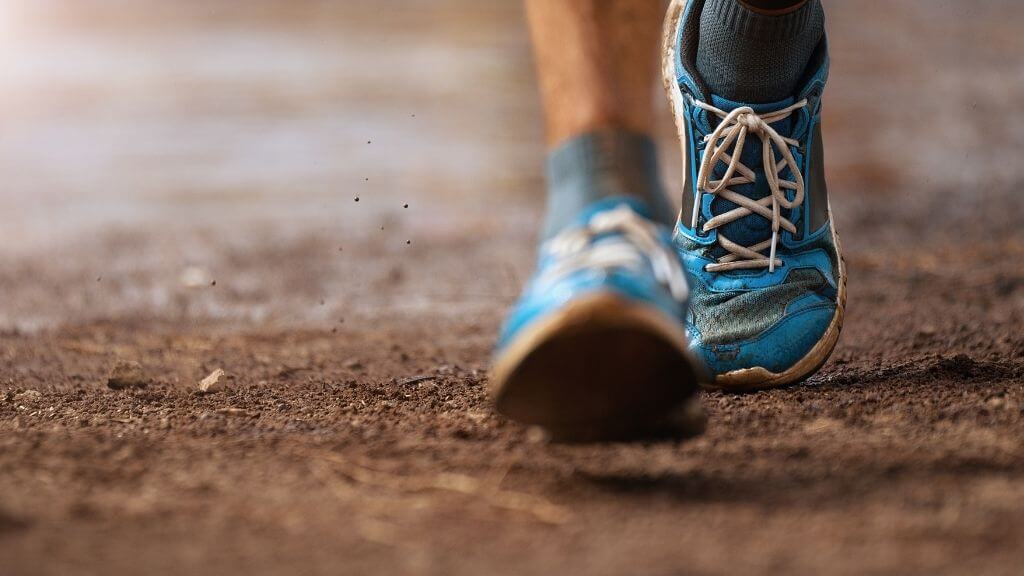Rucking is when you wear a pack on your back and walk with a heavy load. When you add weight to your body for an extended period, it can lead to improvements in cardio, reduction in inflammation, and increased bone density.
Does Rucking Help Running?
Yes, many people have noticed that after they stopped running and started focusing on rucking they could still run like before. Marathon runners are actually adding rucking in their workout because it has a lower impact on the legs and can help build endurance and muscle.
If you’re not a fan of running, but still want to burn calories, you can try rucking. Compared with running, rucking burns almost as many calories. It depends on how long the ruck is, the weight you are carrying, and your body but the results should be similar.
If you do decide to start rucking, make sure you get some good advice from someone who knows what he or she’s doing first. You don’t want to injure yourself!
How Does Rucking Help Running?

There is a growing movement of runners who are using rucking as a way to improve their running performance. But how does rucking help running?
When it comes to running, there are a few reasons why rucking may be beneficial for improving performance.
Rucking Helps Build Muscles
Rucking is an activity that can be done anywhere. It builds cardiovascular fitness, but also helps strengthen muscles all over the body. The act of rucking requires you to walk with a backpack filled with weight on your back. It places more demands on your muscles than walking without a load, so it’s good for building muscle.
The most obvious benefit of rucking that also helps running is that it strengthens the legs and hips. When you’re carrying heavy weights those areas become stronger because they have to work harder.
Rucking relies on muscles in the legs, back, shoulders, and core because of the weight being carried on one’s back.
Low Impact Training
Rucking is typically slower-paced than traditional running, which can have a lower impact on the joints. This means less wear and tear on the knees and ankles. It may be easier to do this type of exercise if you are recovering from an injury or feeling knee pain.
Endurance
Rucking builds endurance by testing a person’s ability to carry a weighted backpack and walk for prolonged periods. Rucking is a form of military fitness training that has been adopted by civilians as a way to improve overall health and wellness.
This can benefit running as well since ruckers are often required to march long distances while carrying heavy loads.
How Much Does Rucking Help with Running?

Rucking is the act of walking with weight on your back to improve fitness. Rucking can lessen the impact on your joints and reduce injury-causing pressure on the spine. It will also improve leg muscles, like quads, hamstrings, and calves. Research has shown that rucking can give runners an edge in endurance, speed, and stamina.
However, it may not work for everyone. Some people find they have more energy when rucking than when running without a pack. Others feel uncomfortable while rucking because their hips aren’t used to bearing so much weight.
While rucking can help improve running you have to still try to run/jog from time to time. This is what marathon runners do. They include one ruck per week or more in their workout. This helps them build endurance and muscles that would not be engaged while running.
Does Rucking Make You Run Faster?
There is no evidence to support that rucking can make you run faster.
Running faster is a goal that every runner strives for. There are a few ways to improve your speed, and it is often accomplished by increasing your stride length and decreasing the amount of time before you take another step. It’s important to make sure that you do not increase the height of your knee as this can lead to injury.
Rucking will help you build muscles, endurance, and strength which all contribute towards improving your overall performance.
Final Thoughts
In conclusion, rucking does help running. The benefits that it provides will help you become better at running if that is what you want. This is because it strengthens muscles that not only help running but also other aspects of fitness.
Rucking can be done in many different ways, making it an accessible type of training for everyone. This makes rucking a good addition to any training program to provide additional benefits to one’s progress.



